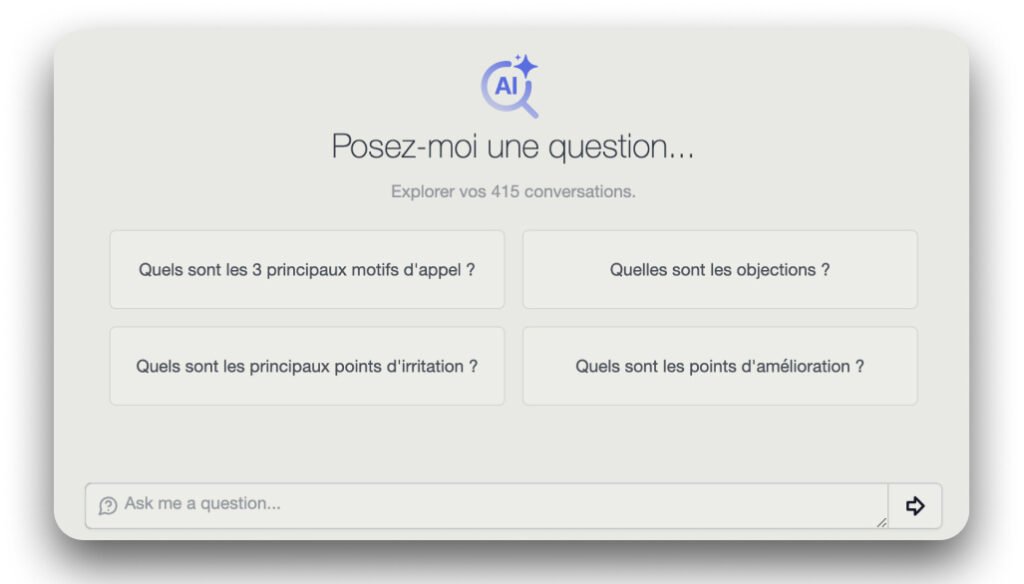
🧭 Introduction : a silent revolution is in the works
for more than twenty years, Google reigns without sharing in the world of online search. However, a new player that upsets the established codes : Perplexity AI
Based on artificial intelligence generative, Perplexity, do not simply respond to queries, it includes the questions, contextualizes the answers and synthesizes the information, as would a real wizard human.
In 2025, this approach completely redesigns the way we access knowledge. In this article, we will see how Perplexity differs from a traditional search engine is, what challenges it raises, and why it embodies already the future of research on the Internet.
🔍 1. Perplexity AI : a search engine conversational
Unlike Google, Bing, or DuckDuckGo, Perplexity AI does not display a list of links.
It analyzes the web in real-time, compiles the most relevant information and write a clear answer and structured, with sources listed in support.
This is what is called the search conversational :
- You ask a natural question : ” What is the best language to create a mobile application in 2025 ? “
- Perplexity, you responded with an edited summary, including expert opinion, statistics, and links to the sources.
- You can then restart the conversation : ” And for a startup with a small budget ? “
This approach radically changes the user experience. No more need to navigate between ten tabs — the AI does the sorting for you.
👉 In summary :
| Critère | Google (classique) | Perplexity AI |
|---|---|---|
| Résultat | Liste de liens | Synthèse rédigée avec sources |
| Interaction | Mots-clés | Dialogue naturel |
| Mise à jour | Indexation régulière | Recherche en temps réel |
| Gain de temps | Modéré | Très élevé |
⚖️ 2. The major issues : content, copyright and reliability
of This technological revolution also raises ethical issues and economic constraints.
🔸 (a) the dilemma of The content and the copyright
Perplexity relies on content being posted by journalists, bloggers, or researchers.
But that is paid when the AI summarises this information without generating direct traffic to the websites of origin ?
Google, for example, redistributes traffic through clicks.
Perplexity, he reduced this exhibition : the user often gets the response without a visit to the source.
👉 This calls into question the business model of the web, based on the publicity and visibility.
🔸 (b) the question of The reliability and bias
challenge the truthfulness of the responses.
Even if Perplexity cites its sources, it is still dependent on the quality of content available online.
The teams of Anthropic (and other partners AI) are working on algorithms traceability, to verify the origin and credibility of each piece of information.
🔸 (c) A debate on the transparency of the AI,
The users want to know how the answers are built.
Perplexity focus on transparency, with quotations visible, unlike ChatGPT or Gemini, which do not always sources.
This approach reinforces the trust and positions Perplexity, as an actor ethics of the research, IA.
🚀 3. What differentiates Perplexity, a classic search engine
Perplexity, ‘VE differs on three key points :
1️⃣ The user experience : a natural and fluid
user-type in addition to the keywords, but raises questions as to an expert.
This interaction makes the search more humane and more intuitive.
2️⃣ The intelligence of context
Perplexity, includes the context of the conversation : it retains your previous questions to improve the following.
This approach is conversational and cumulative, which simulates a real dialogue.
3️⃣ The relevance and timeliness
Thanks to its models, AI and research, real-time web, Perplexity, offers responses ultra-relevant in a few seconds.
Professionals, students, and journalists earn a considerable amount of time to their work and analyses.
🔮 4. The future : towards wizards AI embedded and ubiquitous
with The evolution of Perplexity, announces an era where the research will occur only via a web browser.
Here are the key trends to come :
🔸 a) Integration into the browsers, and tools of the daily
Perplexity, could be directly integrated into Chrome, Safari, or Edge, allowing the user to to ask a question at any time , without changing tab.
🔸 (b) Assistants voice and AI personal
Combined with tools such as Claude AI, ChatGPT or Gemini, Perplexity, could become the voice intelligent of our devices : a real wizard cognitive staff.
🔸 (c) mobile Search increased
The mobile version of Perplexity is already optimized for a fast and fluid.
In the long term, it could associate with glasses connected or voice interfaces for instant access to the knowledge.
💡 5. Why this evolution is inevitable,
The information became too dense and too fast to be explored manually.
Users want to understand, not just to look.
This is where Perplexity, AI is a game-changer :
- It synthesizes, contextualizes and explains.
- It provides an experience that is fluid, human and transparent.
- And most importantly, it restores the sense to research on the Internet.
🧩 Conclusion : the era of the intelligent search
Perplexity, I mark a historic break with the model of the search engines traditional.
By combining the power of AI and the reliability of sources, it ushers in a new generation of tools : those who think with you, rather than for you.
Whether you’re a journalist, a student, or simply curious, to learn how to control Perplexity, today, it is understanding the next revolution of the web.

